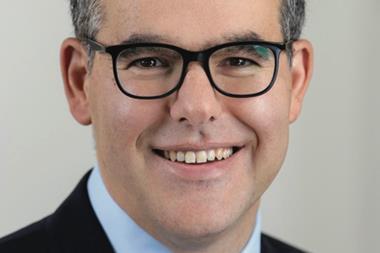The European Fund and Asset Management Association (EFAMA) has today published the 14th edition of its Asset Management Report, which contains an extensive section on the role of asset managers in promoting ESG.
The report – which provides in-depth analysis of recent trends in the European asset management industry, focusing on where investment funds and discretionary mandates are managed in Europe – also showed concrete examples of how asset managers integrate ESG into sovereign debt analysis and help finance green projects through investments in green bonds.
In addition, the report disclosed data on asset managers’ clients in both investment funds and discretionary mandates, and included analysis by McKinsey & Company on the future of sustainable investing, and a contribution by Cerulli Associates on how European insurers use third-party asset managers to navigate the investment and regulatory environment.
EFAMA’s report also revealed that total assets under management (AUM) in Europe grew to €32.2trn at the end of 2021. The outbreak of the war in Ukraine, the sharp rise in inflation and interest rates, and the resulting slowdown in economic growth led to a sharp fall in bond and stock markets in 2022, the Association said. This resulted in an estimated decline in total AUM to €28.4trn at the end of September.
Tanguy van de Werve, EFAMA’s director general, said: “2022 has been a difficult year for asset managers and their clients, as the war in Ukraine, the sharp rise in inflation and the tightening of monetary policy have had a very negative impact on global financial markets. But the current difficulties should not make us lose sight of the bigger picture and the need to further develop and integrate European capital markets and support the sustainability transition.”
He added: “The European asset management industry remains fully committed to playing its role in pursuit of these objectives, by helping investors achieve their financial goals, channelling long-term savings into the economy, and addressing the fast-growing demand for dedicated ESG strategies.”
Asset management in Europe is concentrated in six countries where almost 85% of asset management activity takes place, it added. The UK is the largest European asset management market, followed by France, Germany, Switzerland, the Netherlands and Italy.
The share of investment funds in total AUM has risen steadily to reach a record of 56.6% at the end of 2021, the report stated. The higher share of equity in the portfolio allocation of investment funds, combined with strong rise in stock markets in 2021, is the main reason behind this evolution.
The outstanding amount of debt securities and listed equity issued in Europe and held by European asset managers at the end of 2021 stood at an estimated €6.9bn and €3.6bn, respectively, it added.
At the end of September 2022, the net assets of sustainable bond and equity funds amounted to €343bn and €1.1trn, respectively, based on data from Refinitiv Eikon and Morningstar Direct. EFAMA’s analysis shows that high environmental scores tend to be associated with high social and governance scores.
Furthermore, during the period 2018-21, the share of listed equity in the asset allocation of asset managers increased from 28.4% to 32.7%, boosted by the strong performance of global stock markets. Mirroring this evolution, the share of bonds fell from 40% in 2018 to 36.4% in 2021, the Association revealed.
Bernard Delbecque, EFAMA’s senior director, said: “Institutional investors outsource about 30% of their assets to third-party asset managers, with the remainder managed in-house. There is therefore a huge untapped potential for asset managers to increase their share in the institutional market.”
He noted that the rise in regulatory requirements, the need to develop ESG investment solutions and engage with companies to improve their ESG performance, in addition to the increase in the cost of market data, data analytics and artificial intelligence applications, are all “good reasons to believe that a growing group of institutional investors will rely on asset managers in the coming years, to benefit from the economies of scale that can be achieved in the asset management industry”.







